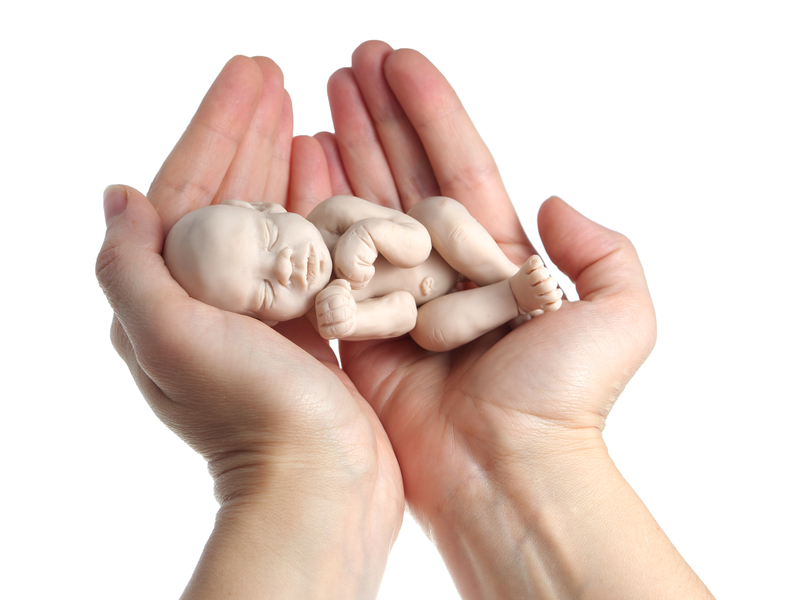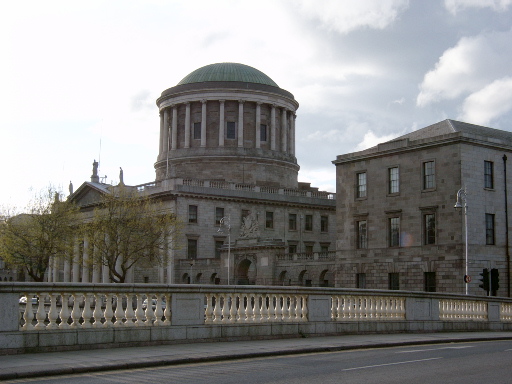
Pressure is already being applied to make the radical abortion legislation promised by the Government even more extreme. Solidarity TD Ruth Coppinger has called on the Government to explicitly allow for abortion of the disabled beyond the 12 week timeframe and to remove the three-day waiting period before a woman will receive a requested abortion.
Ms Coppinger has sent a lengthy submission to Minister for Health Simon Harris, who is preparing a Bill to regulate the termination of pregnancy. Her submission, which was written by Dr Abigail Aiken of the University of Texas, includes a call for legislation to enforce a “buffer zone” excluding protestors from getting access to women seeking abortion services.
Ms Coppinger also asked Minister Simon Harris in the Dáil on Wednesday that the legislation be “trans-inlcusive”, meaning that abortion should not be restricted just to women, but should be available to all “pregnant persons”. This is because the State now recognises some biological females as men.

Hillary Clinton has lavished rich praise upon Ireland’s youth for campaigning tirelessly to repeal the 8th amendment. She made the remarks as she herself was lauded by Trinity College Dublin who granted her an honorary doctorate of laws.
During her 30-minute address, Mrs Clinton said the Irish abortion referendum was “an inspiring sight”.
“People flew home to vote from all over the world. The airports were mini rallies, with cheering and colourful banners greeting travellers as they arrived from as far away from Japan, Australia, and of course America,” she said.
“And on the day of the vote, one of the strictest anti-abortion laws in the world was overturned, with nearly 87 percent of 18-25 year-olds voting ‘yes’. It was an example of grassroots activism fuelled by young people, and a triumph of the democratic process.”
Ms Clinton is in favour of abortion being legal right up until the ninth month of pregnancy.

More than 450 patients died after being given powerful painkillers inappropriately at a UK hospital, a report has found. A further 200 patients may have suffered a similar fate. An independent inquiry found there was an “institutionalised regime” of prescribing and administering dangerous amounts of morphine to elderly patients without clinical justification.
The practice was overseen by Dr Jane Barton and assisted by some of the nurses working at the hospital.
Established to address concerns about the deaths of the patients, the inquiry’s work included looking at 833 death certificates signed by Dr Barton who oversaw the practice of over-prescribing morphine on the wards in question. So far, the only person to face disciplinary action has been Dr Barton, who was found guilty of failings in her care of patients in her care at Gosport Hospital between 1996 and 1999. But no prosecutions were brought and she was not struck off the medical register, choosing to retire after the findings.
Bridget Reeves – whose grandmother Elsie Divine, 88, died at the hospital in 1999 – said: “These horrifying, shameful, unforgivable actions need to be disclosed in a criminal court for a jury to decide and only then can we put our loved ones to rest.”

Parents in four areas around the country that are due to build new schools have started voting today on the kind of ethos they would like their local school to have. The Department of Education has launched a new “one-stop shop” website where parents can directly compare different patron bodies, whether religious-run or secular, and then register a preference.
The four schools, which will open in 2019, will serve communities in Dublin, Galway, Drogheda and Wicklow. A number of patrons have expressed an interest in running each of the schools and have supplied a range of information, such as about ethos, for the website. Parents will be able to choose a religious-run school or a multi-denominational or non-denominational patron, and an English or Irish-medium instruction.
Another voting process involving schools to be built in other areas will open later in the summer. The initiative is part of a process to decrease the number of denominational schools around the country.

Health Minister Simon Harris promised another plan on women’s health yesterday, including the provision of abortion services, but did not say how the crisis in gynaecology outpatient waiting lists, which are putting patients at risk, will be tackled.
According to the Irish Independent, doctors have been warned women seeking a routine appointment to see a gynaecologist in the Coombe Hospital, Dublin, will have to wait a year or more. In the country as a whole, there is an ongoing crisis in gynaecology outpatient waiting lists, with 27,913 women facing delays across the country.
Minister Harris said he intended to “develop services in hospital settings in line with the maternity strategy” to support upcoming legislation to implement his preferred radical abortion regime. He promised there would be “equitable access regardless of ability to pay or geographic location”. Mr Harris also said conscientious objection would be facilitated but “it cannot be contemplated that there would not be appropriate referral in these circumstances and we will ensure that there will be”. However, talks have yet to take place with GPs who will deliver medical abortions.
Mr Harris reiterated his plan to erect exclusion zones around maternity hospitals to stop potential pro-life protesters coming too near the entrances.

The Archbishop of Dublin, Diarmuid Martin, has responded to remarks by Taoiseach Leo Varadkar, that Catholic hospitals must perform abortions. A spokesperson for the Archbishop told the Irish Catholic newspaper: “There is nothing new in Taoiseach’s statement. It is the law in Ireland since 2013. The Archbishop is unaware of any conflict situation in that time. Hospitals can only carry out procedures for which they are commissioned and have specific capacity.”
By contrast, Waterford’s and Lismore’s bishop, Alphonsus Cullinan, said Catholic institutions “should resist, at all costs, being forced to act against deeply held beliefs.”
Meanwhile pro-choice advocate, Dr Peter Boylan, said that publicly funded, Catholic hospitals will have to provide abortion services. He said such hospitals cannot “deny a legal form of treatment to half the population, i.e., women”, by refusing to perform abortions “when medically indicated and legal”. He was responding to a letter from moral theologian, Fr Vincent Twomey, who said that, contrary to the claims of the Taoiseach, the new article that replaced the 8th amendment does not empower legislators to mandate hospitals to provide abortion “services”, least of all Catholic hospitals.

A mother has successfully sued for compensation after a prenatal test failed to diagnose a serious genetic disability in a baby that she would have otherwise aborted.
The mother is a carrier of a rare genetic condition and, when she became pregnant, worried her child might have the same condition. She had planned to exercise her constitutional right to travel to the UK for an abortion if a test showed her unborn child had the same condition, the High Court heard. The test gave a “normal” result and the woman proceeded with the pregnancy. However, the child was born with the condition and needs 24 hour care.
Because of the incorrect test, the mother claimed she was deprived of the ability to give informed consent and to make an informed choice in respect of the continuance of her pregnancy. The mother sued The Rotunda Hospital, Dublin, and Our Lady’s Children’s Hospital, Dublin. Full liability in the case was conceded by the hospitals who said that “in the particular circumstances of this case and in light of the outcome of the recent referendum repealing the Eighth Amendment to the Constitution” liability was conceded, and a public policy defence was withdrawn.
Mr Justice Cross, noting liability had been conceded, said he accepted that but he would have thought the result of the referendum had nothing to do with it.

The Irish Times science writer has warned that assisted suicide will be the next item on the agenda following the abortion referendum. Writing in today’s Irish Times, William Reville, emeritus professor of biochemistry at UCC, said the next debate in Ireland will be about whether assisted suicide should be legally available to ‘incurably ill patients suffering great distress’. He himself would not favour the proposal because he believes “it contradicts the intrinsic moral value of human life”. And, while Christian ethics rules out suicide and hospice clinicians give assurance that there is no pain that cannot be managed, he acknowledges that it is a difficult ethical and political question. Nonetheless, he strongly disagrees with the idea that all lucid adults, healthy as well as ill, should have the legal right to end their own lives. “Assenting to this would normalise suicide and euthanasia in society. We currently acknowledge that every human life is of incalculable value but, if suicide and euthanasia were normalised, human life would quickly come to be evaluated on utilitarian grounds. We must be careful not to foolishly wish for unlimited human freedom to choose – we wouldn’t like it if we got it.”

The Offaly TD Carol Nolan has resigned from Sinn Féin as she doesn’t want “any hand, act or part” in ending the lives of unborn children. She had already been on a three-month suspension for voting against the Bill to hold a referendum to repeal the Eighth Amendment and during that time had campaigned for a No vote. Since then, the party voted against allowing its members to have a vote of conscience on abortion policy.
In a statement, Ms Nolan said she felt it was “unethical to force TD’s who were strongly opposed to abortion to vote against their conscience”. She continued: “I do not want to have any hand, act or part in bringing about the end to the life of an unborn child, the most vulnerable in our society. It is not for politicians or society, in general, to decide who lives or dies. Every life is precious, and every child deserves the chance to live. I don’t believe that abortion is the solution to any crisis. How can it be when it takes the right to life away from the unborn? I cannot and will not support abortion and for that reason I have made a decision to leave Sinn Féin.”

The Cabinet has agreed to hold a referendum to delete the article of the Constitution that grants some protection to mothers from having to work outside the home due to economic pressure. The clause is often disparagingly and falsely referred to as the “woman’s place is in the home” article.
The decision to delete the article completely comes as a surprise because when the Constitutional Convention examined the issue in 2013, 98 per cent voted in favour of amending the wording to render it gender-neutral. It also proposed to include other carers both “in the home” and “beyond the home”. However, the Minister for Justice asked the Cabinet to hold a referendum to repeal the clause in its entirety on foot of a decision by an internal taskforce in the Department of Justice.